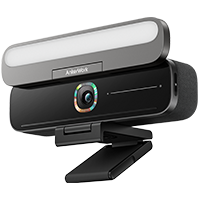When you need to stay powered on the go, a portable power station is a perfect solution. But it’s important to know all about charging your station so that you can get maximum use out of it—and make sure your devices stay powered when you need them. When it comes to recharging a portable power station, there are several options available. Each option has its own unique benefits, so it is important to consider all of them before deciding which one is right for you. In this comprehensive guide, we will discuss the different methods of recharging a portable power station as well as which one may be the best choice for you depending on your needs.
How to Charge Portable Power Station?
When it comes to charging a portable power station, you can mainly use three types of outlets - home outlets, car outlets, and solar panels. Let’s take a look at each one in turn.
Method 1: Charging With Outlets at Home
The easiest and most common way to charge your portable power station is with a wall outlet. All you need to do is plug in the included charging cord, then connect it to an appropriate wall outlet. Most portable power stations will have either a USB-C or DC port for use with a wall outlet. There is no doubt that this method is the fastest. For example, by using this method, the Anker SOLIX F2000 Portable Power Station can charge up its 2048Wh Capacity in only 2 hours - making it an ideal choice for those who enjoy portable power stations for camping. With such speed and ease of use, you'll never have to worry about running out of power while traveling!
Method 2: Charging by Your Car
Another great way to recharge your portable solar power station is by using your car as a source of power. Charging your power station with a car charging cable by connecting the cable from the power station to the output port of your car. It’s great for short trips like camping or hiking where you may not have access to an AC wall outlet but still need some electricity for your devices. If you choose this option, be sure that both your car battery and device are compatible with the voltage output of the car adapter – otherwise, they may not be able to charge properly. This method works well for those who are on long trips and need to charge their device while driving, but it is not as fast as plugging into an outlet at home.

Method 3: Charging With Solar Panels
A portable power station with solar panel charging features is a great option for recharging your device if you don’t have access to either a home outlet or a car outlet. To charge your power station with solar panels, you can place them in the sunshine and find the solar charging port at the back of the power station. Then connect the power station and the solar panels with a charging cable. Some power stations support connecting to more solar panels which may speed up the charging. This method requires investing in some additional equipment such as solar panels and batteries but can be incredibly useful for those who spend a lot of time outdoors without easy access to electricity sources. Solar energy is also renewable which means that once you’ve invested in the necessary equipment, continued use is free! However, keep in mind that depending on cloud cover and other environmental factors, charging times with this method can vary significantly so it might not be suitable for quick recharges during shorter trips away from home.

{{ component: "product", handle: "bundle-a1780211-1-a24320a1-3", sku: "BUNDLE-A1780212-1-A24360A1-3"}}
How Long Does It Take to Charge A Solar Generator?
The amount of time will depend on the model and battery capacity, as well as the charge way you are using.
Generally, charging with an AC wall outlet is the fastest way to go. For most models, this can take anywhere from 2-5 hours. Besides, solar panels have varying charging times depending on environmental conditions and the number of panels but generally take longer than home outlets do. In addition, Car recharging may take a much longer time. Depending on the battery type and size, it can take anywhere from 6-20 hours or even longer.
For a more visual comparison, take Anker SOLIX F2000 Portable Power Station which has a capacity of 2048Wh as an example.
Charging by AC Wall Outlet:
- 2.1 hours (JP AC 1200W);
- hours (US AC 1440W);
- 1.4 hours (UK/EU AC 2200W).
Connecting to Anker 531 Solar Panels (200W/PC):
- 2.5 hours (1000W, 5 PCS);
- 2.9 hours (800W, 4 PCS);
- 5.7 hours (400W, 2 PCS);
- 11 hours (200W, 1 PC).
Car Charging:
- 19.6 hours (120W, Car);
- 9.3 hours (240W, Truck).
Conclusion
When it comes to recharging a portable power station, there are several options available. Each option has its own unique benefits, so it is important to consider all of them before deciding which one is right for you. While home outlets tend to be the fastest way to charge up your device, solar panels offer free renewable energy and car adapters allow you to recharge while on the go. No matter your needs, with this guide in hand you’ll have no problem finding the best charging solution for your portable power station!
FAQs About Charging A Portable Power Station
How long does a portable power station hold a charge?
The answer depends largely on what type/size/capacity battery was installed in the device when purchased - larger capacity batteries tend to hold their charge longer than smaller ones but generally range anywhere from 6-24 hours. To maximize your device’s lifespan, it is best to unplug it when not in use and recharge it regularly.
Can you leave a portable power station plugged in all the time?
Not recommended - overcharging batteries has been known to reduce their capacity over time making them less effective so plugging them in only when necessary would be best.
Are portable power stations worth it?
Yes. Portable power stations are worth it for anyone who spends a lot of time away from home and needs access to electricity. Here are some benefits below:
First, having reliable electricity on hand whenever needed regardless of location can make all sorts of activities easier from portable power stations for camping trips & home battery backup & festivals to business meetings & disaster relief efforts alike.
Additionally, portable power stations come with lots of additional features such as solar charging and car adapters making them even more valuable.




















